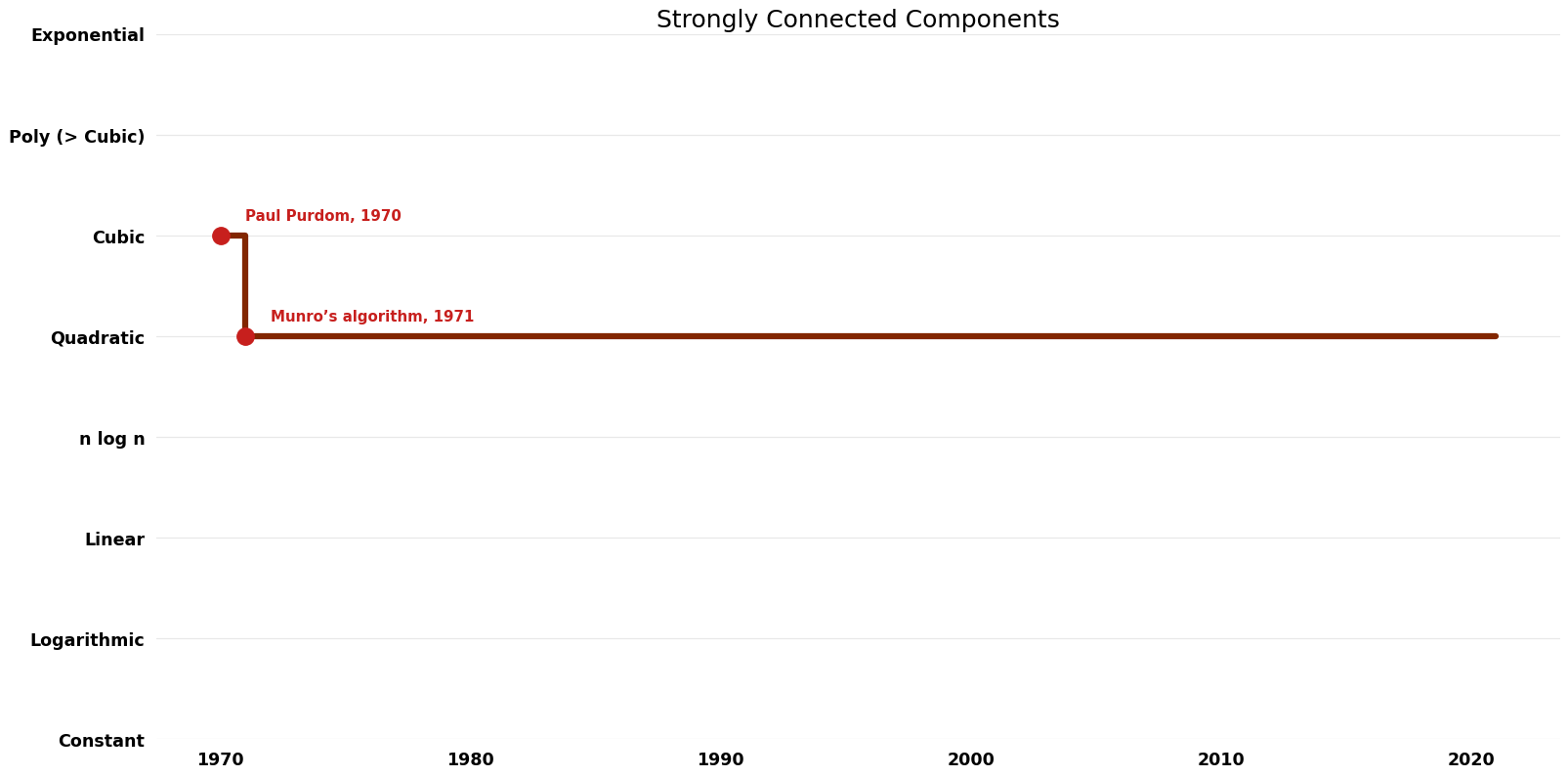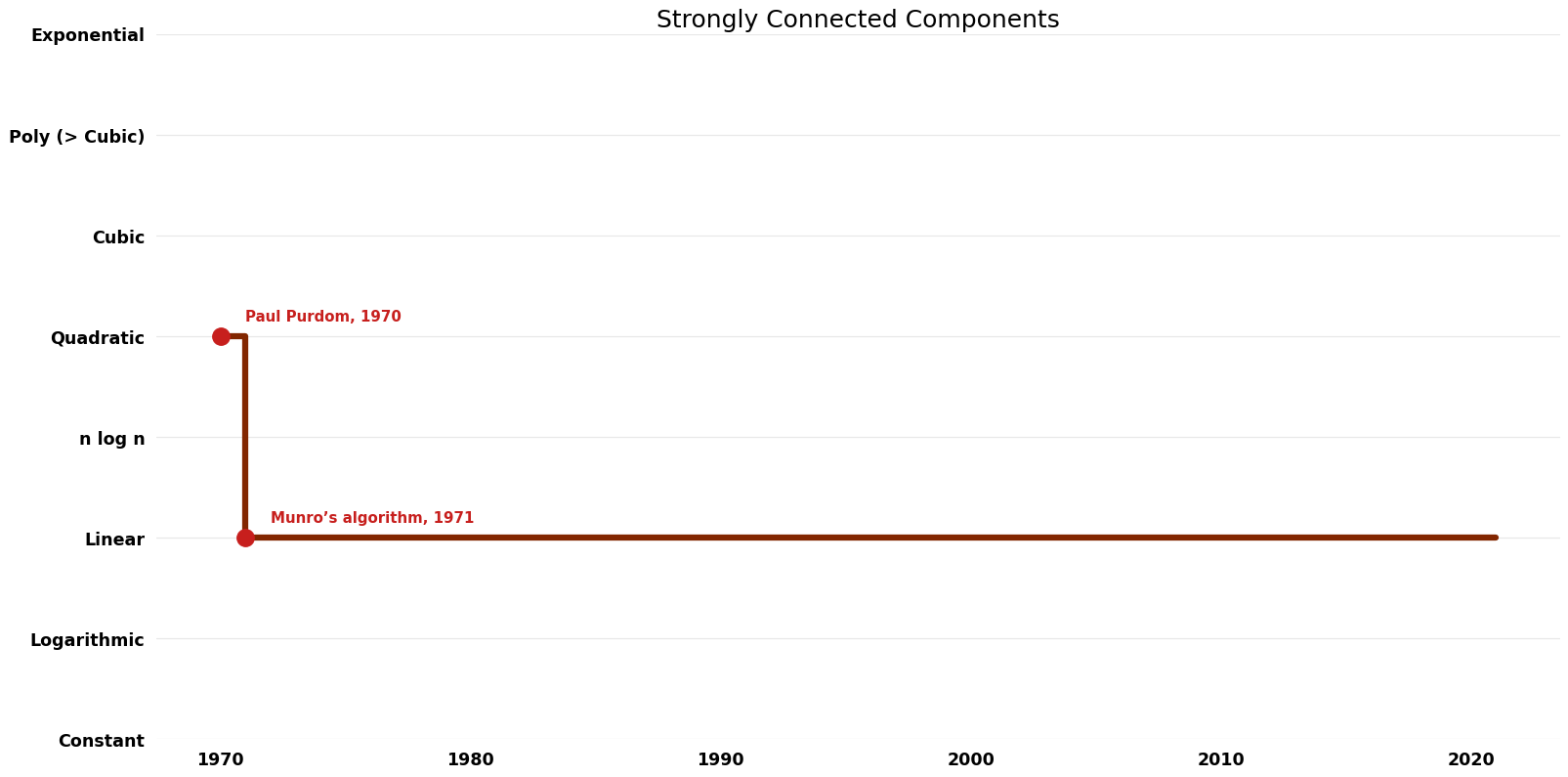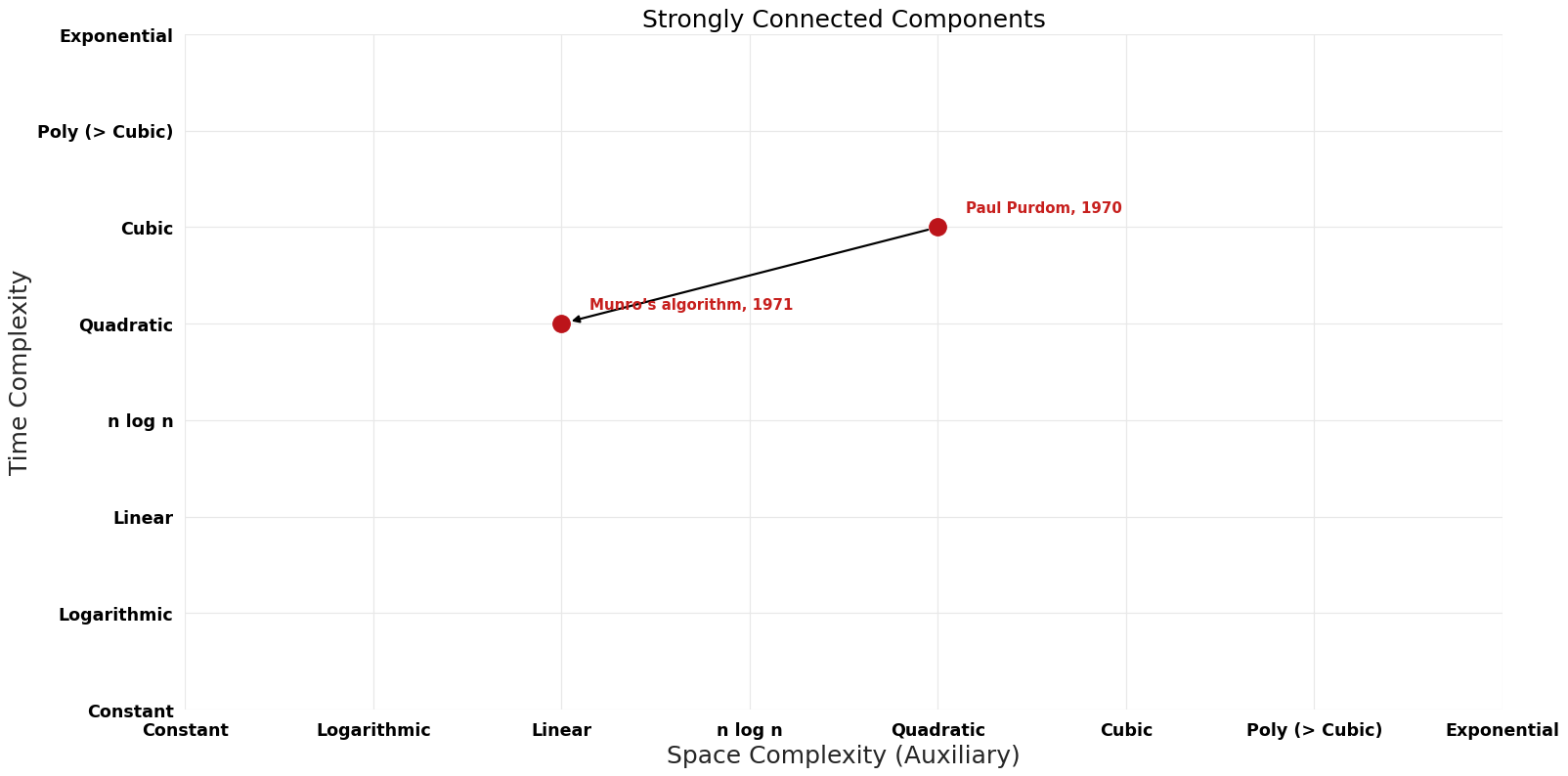Strongly Connected Components: Difference between revisions
Jump to navigation
Jump to search
No edit summary |
No edit summary |
||
| Line 18: | Line 18: | ||
Currently no algorithms in our database for the given problem. | Currently no algorithms in our database for the given problem. | ||
== Time Complexity | == Time Complexity Graph == | ||
[[File:Strongly Connected Components - Time.png|1000px]] | [[File:Strongly Connected Components - Time.png|1000px]] | ||
== Space Complexity | == Space Complexity Graph == | ||
[[File:Strongly Connected Components - Space.png|1000px]] | [[File:Strongly Connected Components - Space.png|1000px]] | ||
== Pareto | == Pareto Frontier Improvements Graph == | ||
[[File:Strongly Connected Components - Pareto Frontier.png|1000px]] | [[File:Strongly Connected Components - Pareto Frontier.png|1000px]] | ||
Revision as of 14:04, 15 February 2023
Description
The strongly connected components or diconnected components of an arbitrary directed graph form a partition into subgraphs that are themselves strongly connected.
Related Problems
Related: Transitive Closure, Maximum Strongly Connected Component, Strong Connectivity (dynamic), 2 Strong Components (dynamic), Connected Subgraph
Parameters
V: number of vertices
E: number of edges
Table of Algorithms
Currently no algorithms in our database for the given problem.


